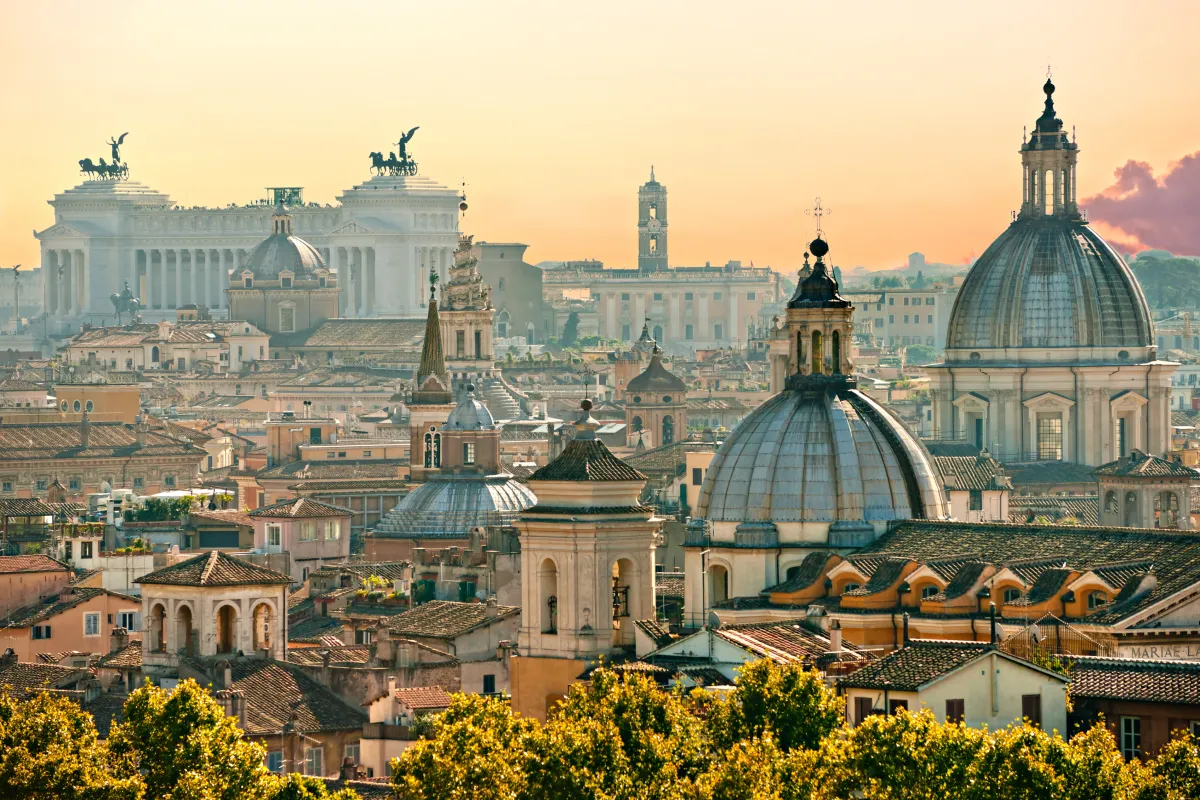
Countries
Employer of Record in Italy | Culture
We help you remain competitive for top talent and grow your global team quickly — no entity required

Italy Fast Facts
Download our guide to hiring in Italy.
Culture and Holidays in Italy
Languages
Italy is a monolingual workplace environment, with Italian used across industries. While English is present in multinational corporations, Italian dominates corporate settings, government, and business sectors nationwide. Workplaces often operate in an Italian-only manner, depending on the industry and region.
In corporate sectors like IT and finance, Italian is the primary language for communication, documentation, and client interactions, especially in domestic companies. Meetings, presentations, and official emails are generally conducted in Italian, though employees may use English informally.
In government offices and public sector organizations, Italian is mandated for internal communication and documentation. Italy has proposed legislation requiring the use of Italian in official communications, with potential fines for non-compliance.
The manufacturing and retail sectors rely on Italian for daily operations, especially in labor-intensive industries. Factories, warehouses, and construction sites primarily use Italian, while management-level communication may include English in international firms.
In customer service, language use depends on clientele. Italian is common for domestic support, while many companies also hire English speakers to cater to international customers.
Workplace norms and professional etiquette
Italian workplace culture emphasizes hierarchy, relationship-building, and a blend of formality with warmth. Understanding these cultural nuances is essential for effective professional interactions in Italy.
Workplace hierarchy and authority
Italian organizations often have hierarchical structures where decision-making is centralized. Respect for authority is paramount; employees are expected to follow established protocols and show deference to seniority and titles. Addressing colleagues with appropriate titles — such as “Dottore,” “Ingegnere,” or “Avvocato” — is customary and reflects the importance placed on hierarchy in Italian business culture.
Email and phone etiquette
Business communications in Italy are formal yet personable. Emails typically begin with respectful salutations and may include brief personal notes to build rapport. Clarity and courtesy are valued. Phone conversations often start with small talk before transitioning to business topics, aligning with the cultural emphasis on establishing personal connections.
Meeting etiquette and punctuality
Punctuality is important in Italian business settings; arriving on time is a sign of respect. Meetings usually start with pleasantries and personal discussions before addressing the agenda. Face-to-face meetings are preferred for building trust, and decisions may take time as relationships are nurtured.
Professional dress code
Attire in Italian workplaces tends to be formal, especially in cities like Milan. Men are expected to wear tailored suits and ties, while women should opt for elegant business attire. In warmer regions, business casual may be acceptable, but dressing neatly and stylishly is universally appreciated.
National holidays
In addition to local feast days, there are numerous national holidays celebrated in Italy. In most cases, companies are responsible for offering these holidays as a paid day off:
- Jan. 1: New Year’s Day
- Jan. 6: Epiphany
- Apr. 25: Liberation Day
- Easter Monday
- May 1: Labor Day
- June 2: Republic Day
- Aug. 15: Feast of the Assumption
- Nov. 1: All Saint’s Day
- Nov. (first Sunday): Feast of National Unity
- Dec. 8: Feast of the Immaculate Conception
- Dec. 25: Christmas Day
- Dec. 26: St. Stephen’s Day
Some regions and cities in Italy observe additional local patron saint holidays. It is customary for employees to request bridging leave (ponte) when a holiday falls adjacent to a weekend, thereby extending their time off. Employers may allow work schedule adjustments to accommodate these periods.
Employees required to work on public holidays are entitled to compensatory rest or additional pay, as outlined in their employment contract or national collective bargaining agreements. Make-up workdays are compensated at the standard rate unless otherwise regulated.
Disclaimer: The information provided is for informational purposes only and does not constitute legal or professional advice. Safeguard Global disclaims any liability arising from reliance on this information. Certain content may be sourced from third parties and remains their intellectual property; all other content is owned by Safeguard Global and protected by applicable intellectual property laws. You are encouraged to seek professional or legal advice to address any issues, questions or matters arising from the information contained herein.

Contact Us
Book a demo today
We’d love to learn more about your needs and show you how we can help. Submit the form and we’ll be in touch to schedule a personalized demonstration of our platform and services.
Schedule an appointment
Fill out the form to speak to a rep about how we can help your organization.



















